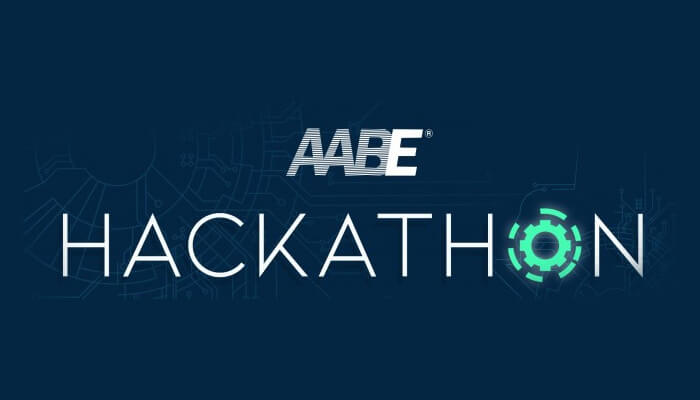Ten Teams of Ten Tackle Challenges to Affect Change and Improve Quality of Life
Ideas that could power the world’s future energy needs will come to Brooklyn, NY as senior energy professionals join policy makers engineers, and scientists, college students and community organizations in a two-day energy “Hackathon.” Teams of diverse participants will hold intense, focused discussions, or “hacks,” as they attempt to design solutions to a range of energy issues as part of the AABE hackathon, that features “Hacking Energy Using Design Thinking.”
The American Association of Blacks in Energy (AABE) hosts its first National Energy Hackathon: Bridging Gaps Through Innovation on November 16th at National Grid and November 17th at New York University Tandon School of Engineering in Brooklyn, NY. The event brings together a group of 100 people from across the country. What makes this hackathon different is its diversity. That diversity eclipses race, gender, ethnicity and culture and embraces differences of experiences across communities, to include policy makers, technology and data science professionals, students and community leaders all working together to create solutions that will lead to new thinking about energy issues.
“At its core, hacking is about change. How to recognize it and how to prepare for it,” says Telisa Toliver, Vice President at Chevron and Chair of the Board of AABE. “Using the hackathon platform to explore solutions to energy industry challenges is novel and helps our industry and communities prepare for change.”
“This event is a clear demonstration of what can be achieved when you embrace diversity and allow it to do the work,” says Paula Glover, President and CEO for the Association. “The Hackathon competition will connect real world business challenges to solutions that improve business results and impact the quality of life, especially in urban communities.”
The AABE hackathon is the first ever cross-industry strategy session and competition focused specifically on energy. Topics to be hacked include: Using technology to improve emergency preparedness and recovery; how to make solar accessible to urban communities; achieving energy efficiency through shared energy technology; improving low income community access to energy efficient programs; energy storage in urban communities without using batteries; energy and transportation-mobilization; and other energy challenges.
Given the AABE mission of addressing energy-related issues that disproportionately impact people of color and promote diversity and inclusion among energy companies, the AABE Hackathon event is a new way to affect change.
Over 40 different companies, government agencies, minority and small businesses and universities will participate in the AABE Hackathon. Joining the hackathon from Washington to deliver a key address on Saturday will be U.S. James Campos, Director of the U.S. Department of Energy Office of Economic Impact and Diversity. The association has often partnered with the US Department of Energy on its Minorities in Energy initiative as well as business development programming for minority entrepreneurs.
The hackathon’s presenting sponsor for 2018 is National Grid and its university partner is NYU Tandon School of Engineering. Companies participating in the hackathon include Google, Exelon, JP Morgan, IBM and Savant Corp., working along with governmental agencies, DOE, New York Power authority, US Department of Homeland Security and the NJ Transportation Planning Authority.
The American Association of Blacks in Energy (AABE) is a national energy trade association that represents all sectors of the energy industry. It is a 2000-member association with 40 chapters nationwide, dedicated to addressing energy-related issues that disproportionately impact people of color and promoting diversity and inclusion among energy companies. AABE’s mission is to ensure the input of African Americans and other minorities into the discussion and development of energy policies, R& D technologies, and environmental issues, and support African American students in the pursuit of careers in energy-related fields.









